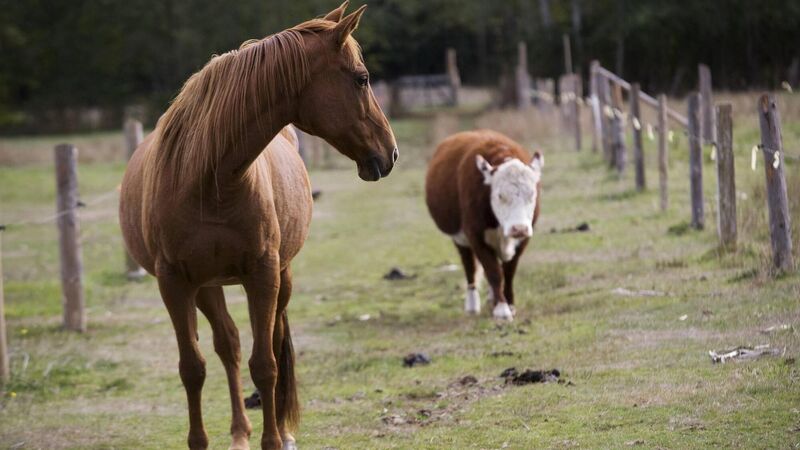Vet on the Moove: Be aware of the risks when co-grazing horses with cattle

Interestingly, co-grazing is a good practice for both ruminants and horses when it comes to parasite control.
Horses and farming have a long harmonious history, and that tradition of horses on farms is certainly alive and well with the number of farmers I met at the Dublin Horse Show.
It made me think about my old pony “Misty” that I had when I was 12 and how she was very much a part of the farm. In my case I saved all my pocket money for my very own pony, it was a dream come true.














